Sarah Cooper Named YALLA’s New Interim Executive Director
What you do matters — Every once in a while there is a person who really makes a difference — meet the charming, intelligent, caring and determined Sarah Cooper, an immigrant herself who is focused on helping others.
What does the word immigrant mean? It is simply a word describing a person who comes to live permanently in a foreign country. The job of helping immigrants, especially in a country whose Founding Fathers were all immigrants — is one Sarah Cooper takes on with great pride.
Recently named the Interim Executive Director for nonprofit organization YALLA — short for Youth and Leaders Living Actively — Cooper enthusiastically takes on the responsibility for leading the San Diego based organization, which makes a positive difference in the lives of refugees and immigrants. YALLA is a small but thriving, nonprofit organization that provides refugee and immigrant youth with an opportunity to rebuild and strengthen their lives through soccer and education.
A London native, Cooper assumes the leadership role after a distinctive career in the nonprofit sector working with adults, kids, and special needs groups in urban areas and brings extensive experience in education and management. With an air of confidence that comes with a successful track record and a deep understanding of the issues, Cooper is well spoken, clear on her goals and is genuinely excited to accomplish headway while Mark Kabban, YALLA’s Founder and Executive Director is on leave to study at Harvard.
Immigrating to the USA and living in San Diego since 2008, Cooper has been active in the nonprofit sector, becoming a Court Appointed Special Advocate (CASA) with Voices for Children. SoccerToday spoke with Cooper on her new role in the youth soccer world and her inspiration for helping those in need.
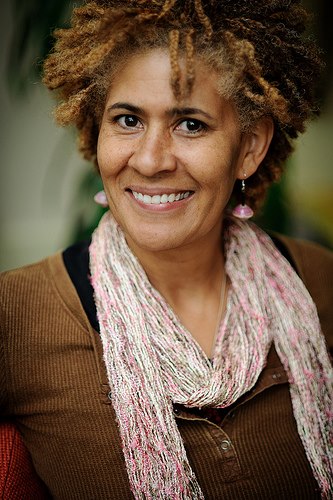
Diane Scavuzzo: Congratulations on your new role at YALLA – what are your goals?
Sarah Cooper: Everyone at YALLA is so committed, but we do not have enough money. My goal is to increase steady funding and put in place a sustainable infrastructure. We have a big future ahead of us and need more resources.
I feel I am really qualified as I bring together the different elements that might not be present in many people in the non-profit world. It is the unique marriage of being involved in non-profits with my twenty plus years of experience in education and a politically aware background with inclusive values — all blended together which provides me with a great background for my new role.
We have a very large immigrant community in El Cajon — which is a city in San Diego County just east of La Jolla and Pacific Beach — and because I am a foreigner, I understand, even on the most superficial level what it is like to be a newcomer to America. And I speak the same language — so many of the immigrants in this area do not.
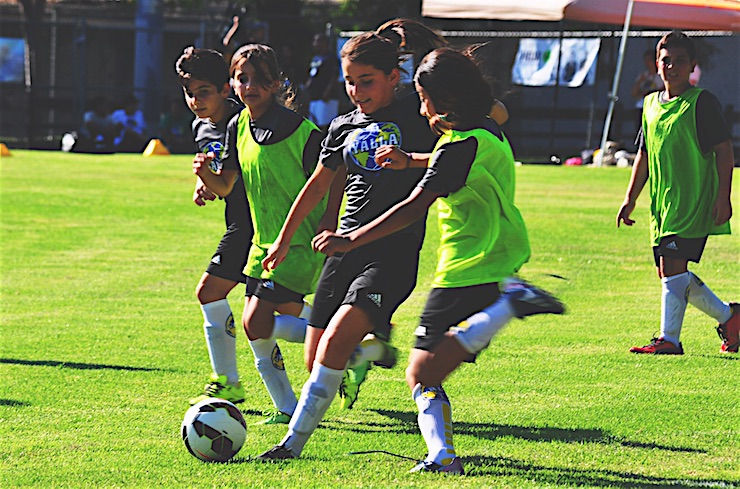
Diane Scavuzzo: What is one of the biggest challenges when you are an immigrant?
Sarah Cooper: It is always hard moving to a different country and it doesn’t help if the community is divided by ignorance. One of the biggest challenges is to break through and open minds. It is very easy for someone who has no interest or understanding of what it is like to be an immigrant to simply dismiss or disregard people who are different. Immigrants often fade from view, accepted as part of the background but these kids at YALLA and in our area are going to be our future doctors and engineers. They deserve our help.
It is really interesting, coming to the States as a black person. People make assumptions about me — until I open my mouth — and then they are really surprised. I have not experienced any discrimination, but I have experienced that shock; there is a disconnection between what they think of the English and under estimating black people.
Diane Scavuzzo: What was the hardest part of moving to here? Why El Cajon?
Sarah Cooper: I had visited Southern California many times, so I thought I knew the system, and I’m from England – not a very different culture – yet is was still an adjustment.
It is the accumulation of everything, from very small things — like how to ask for the bathroom and how to enroll a kid in school, which people looked at me like I was defective for not knowing — that is partly where the sense of culture resides; in all the things the general populace take for granted and you feel stupid for not knowing. Its kind of exhausting.
I moved here in 2008, with my husband Mark who was born and raised in El Cajon. He tried England for 7 years and we wanted our daughter to have a chance to know his parents really well too. And he hated the weather! Everything is bright in California. The people are smiling at you – it’s a very open-hearted and generous place.

Diane Scavuzzo: What attracted you to YALLA? Can you explain what YALLA does?
Sarah Cooper: I was invited to a fundraising luncheon and was bowled over by the stories and the intelligence of these kids!
The kids at YALLA do not have any sense of entitlement and are not afraid of hard work.
We start in elementary school with youth from around world, places like- Liberia, Iraq, Sudan, Guatemala, El Salvador, Palestine, Afghanistan, and Mexico. All of our students have formal interrupted education and holes in their math and literacy. We utilize state of the art education technology to keep them at the edge of their ability and build a strong literacy and math foundation. Every student has an individualized curriculum to their needs. In only 7 months our entire K-8 academy improved a full grade level in reading and literacy. When our students enter our high school program they have the confidence and skill set to pursue a college education.
These students also play in our competitive soccer program. We emphasize skill acquisition, individual responsibility to grow as a player, and teamwork.
Our focus starts on teaching individual skills and then the team dynamics. We put individuals first and that makes our teams strong.
We teach our students how to work hard to learn skills and this knowledge/value transfers to other parts of their lives. Even though we are a refugee low income club, our soccer program is arguably a model for clubs around the country.
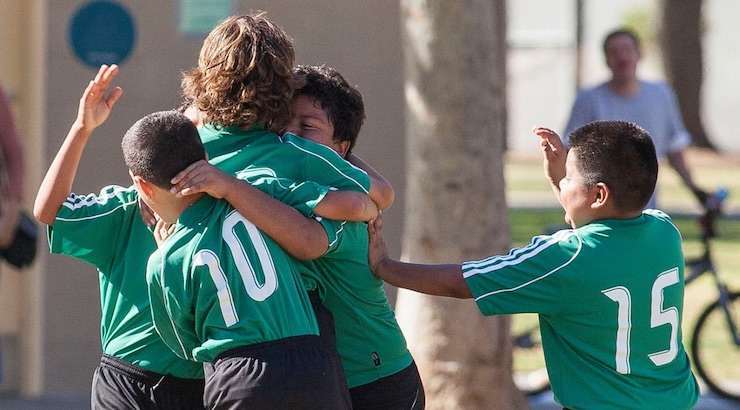 Diane Scavuzzo: Why should people care? Why should they donate their time or money?
Diane Scavuzzo: Why should people care? Why should they donate their time or money?
Sarah Cooper: Oh wow – I could write an essay on this …
Most of these children have experienced a great deal more than my own 11-year old daughter has, things that would make the hairs on your neck stand up. They are survivors.
I am a big believe in the “it takes a village” concept of child-rearing and success. The kids in the community we live in are the future of that community. They are our neighbors now but these kids will be your future doctors and lawyers and worker bees, so we have a duty to ourselves to maximize their aspirations and help them regain the confidence they need to become the best citizens they can be.
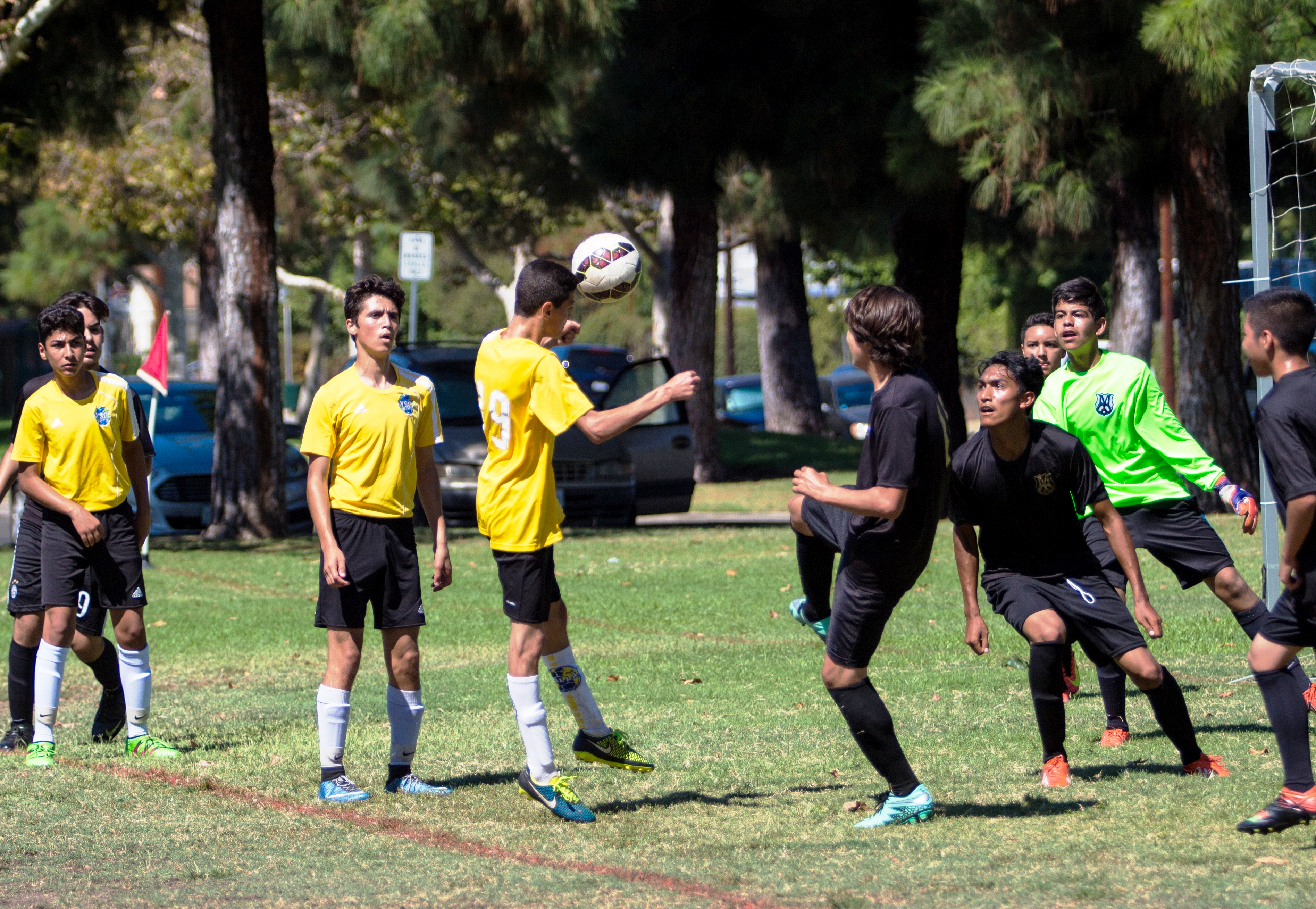
Diane Scavuzzo: How can companies support YALLA?
Sarah Cooper: We are mainly looking for unreserved funds, which it is easier for companies to donate, to pay for our outreach and staffing costs. With grants, the money is usually ring-fenced for a particular purpose. Also, we love volunteers and run several events during the year where the loan of a group of people to help out is really useful!
Diane Scavuzzo: What would be the next step, if interested?
Sarah Cooper: An email to info@yallasd.com will always be followed up within a couple of days. But I am also happy for people to connect with me directly: scooper@yallasd.com or call the office and talk to William, our Community Programs Manager.
Diane Scavuzzo: What is it like working at YALLA?
Sarah Cooper: YALLA’s community is one big family – everyone has been so welcoming, very open minded and appreciative.
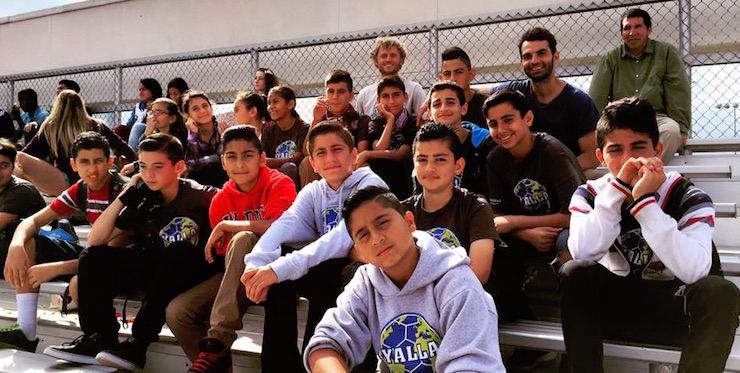
Pictures provided by YALLA or from YALLA’s Facebook






